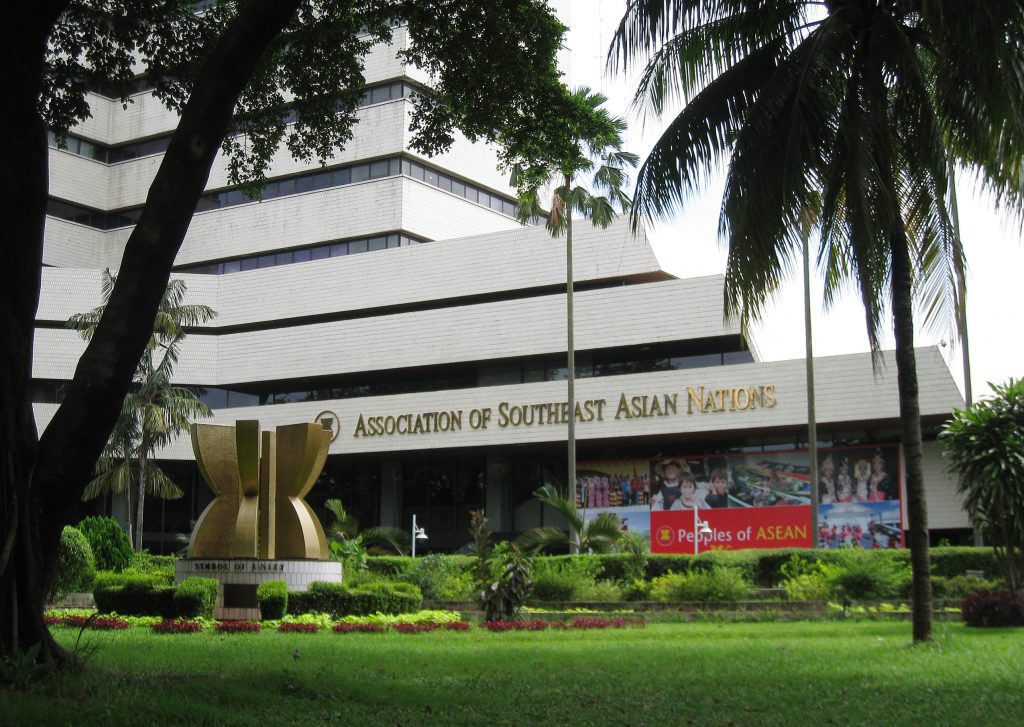ASEAN at 50: the authority of weakness
Posted By John McCarthy on August 24, 2017 @ 06:00

August has been replete with praise for ASEAN as it celebrates 50 years on the job. It is worth reflecting on the impact ASEAN has had on Australia and its place in our future.
First, what ASEAN did not do.
In its early years, ASEAN was given a sense of purpose by the fear of communism. However, its actual role in curbing the latter was limited. When ASEAN was created, the emergency in Malaya was over and Suharto had already been categorical in dealing with the communists in Indonesia. While Thailand had problems with communists in its northeast, their defeat owed little to ASEAN.
Some argue that ASEAN’s role after the fall of Saigon in 1975 was pivotal in containing Vietnamese expansion and in the eventual achievement of a settlement in Cambodia. We should give credit to ASEAN where credit is due. But Chinese and American pressure on Vietnam at a time when the Soviet Union was decreasingly in a position to fight proxy wars was as salient a factor. Vietnam needed to get out of the economic straitjacket which the war and its own statist system had imposed. And on the Cambodia settlement, the last chapter in the Indochina wars, Australia did much of the grunt work.
In recent times, some of ASEAN’s own members have frequently rehearsed ASEAN’s failure to make real progress on security issues (the South China Sea, for example) or on the multitude of economic initiatives which are part of its discourse. This is partly because of its insistence on moving by consensus and doing things the ASEAN way.
That said, ASEAN sits on the credit side of our ledger, but perhaps not for reasons which are commonly adduced.
While ASEAN’s adherence to consensus has contributed to its spending too much time on the treadmill and too little in making progress on the ground, its modus operandi has also diminished the danger of frictions that could have led to ASEAN’s break-up. Its informal sense of community has done much to keep the peace in the region among the original members and was important in healing the divide of the Indochina wars. ASEAN has prospered from peace—as have we.
ASEAN has also been the centrepiece of Asian regional architecture—the ASEAN dialogue partner system, APEC, the ASEAN Regional Forum and the East Asia Summit. While no realist would suggest that the Asian architecture has done everything intended of it, it could not have been developed at all without ASEAN in the middle—because the major powers tend to deny rivals a central role in such schema. It’s because ASEAN hasn’t been able to constitute a powerful phalanx, and because it has been reasonably neutral, that it has been allowed the centrality in Asian affairs that it has sought. Ironically, it has thus derived much of its authority from relative weakness.
As to the future, these factors raise the question of whether it’s in Australia’s interests to have the stronger, more assertive ASEAN which we say we would like to see in the context of China’s growing influence in Asia. Yes, it would be nice to see ASEAN being more assertive, but how much more? The role it enjoys as the prime mover in Asian regional forums, and to some degree the influence it derives from that role, depend on its acceptability to all and its cohesion. Too much assertiveness within ASEAN could endanger both.
Damage to ASEAN’s cohesion and acceptability could in turn menace the fragile web of understandings that underpin the structures we currently have in Asia.
If these arguments have merit, what should Australia do about ASEAN?
Above all, we need ASEAN to survive. If its unity is more important than its robustness, so be it. That unity has served us well and may provide some stabilising presence should the strategic climate in East Asia and the Indo-Pacific deteriorate. And we need our imperfect regional machinery—built around ASEAN—to keep working. But if indeed it does become more assertive, the drive must come from within.
If we put store by ASEAN unity and the value of ASEAN centrality to the Asian architecture, the case is unconvincing (other than in an essentially economic context) for a structurally closer Australian association with ASEAN and negligible for Australian membership of ASEAN—even if we really wanted either.
Many in ASEAN wonder about the integrity of our professed identification with the region given the wholesale priority we have put on our security dealings with the United States since 9/11 and the degree to which we alternatively blow hot and lukewarm on our engagement with the region.
But even if were we to convince ASEAN that we meant what we said about closer association, it’s impossible to see the Australian political style and the current overriding priority we attach to the American relationship permitting ASEAN’s acceptance of our overtures. Moreover, ASEAN’s acceptability to others as the centre of the Asian region depends on maintenance of its broad neutrality and attachment to consensus, which would be contradicted by too close a structural relationship with Australia, at least as our current security policies are constituted.
That’s not to say that we shouldn’t do more of what we already do with ASEAN or continue strengthening our bilateral dealings in Southeast Asia. We should do both. But for us, ASEAN probably works best as it is.
Article printed from The Strategist: https://www.aspistrategist.org.au
URL to article: https://www.aspistrategist.org.au/asean-50-authority-weakness/
Click here to print.